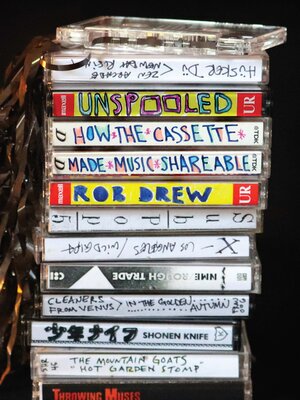
Sign up to save your library
With an OverDrive account, you can save your favorite libraries for at-a-glance information about availability. Find out more about OverDrive accounts.
Find this title in Libby, the library reading app by OverDrive.



Search for a digital library with this title
Title found at these libraries:
| Library Name | Distance |
|---|---|
| Loading... |
Well into the new millennium, the analog cassette tape continues to claw its way back from obsolescence. New cassette labels emerge from hipster enclaves while the cassette's likeness pops up on T-shirts, coffee mugs, belt buckles, and cell phone cases. In Unspooled, Rob Drew traces how a lowly, hissy format that began life in office dictation machines and cheap portable players came to be regarded as a token of intimate expression through music and a source of cultural capital. Drawing on sources ranging from obscure music zines to transcripts of Congressional hearings, Drew examines a moment in the early 1980s when music industry representatives argued that the cassette encouraged piracy. At the same time, 1980s indie rock culture used the cassette as a symbol to define itself as an outsider community. Indie's love affair with the cassette culminated in the mixtape, which advanced indie's image as a gift economy. By telling the cassette's long and winding history, Drew demonstrates that sharing cassettes became an acceptable and meaningful mode of communication that initiated rituals of independent music recording, re-recording, and gifting.







